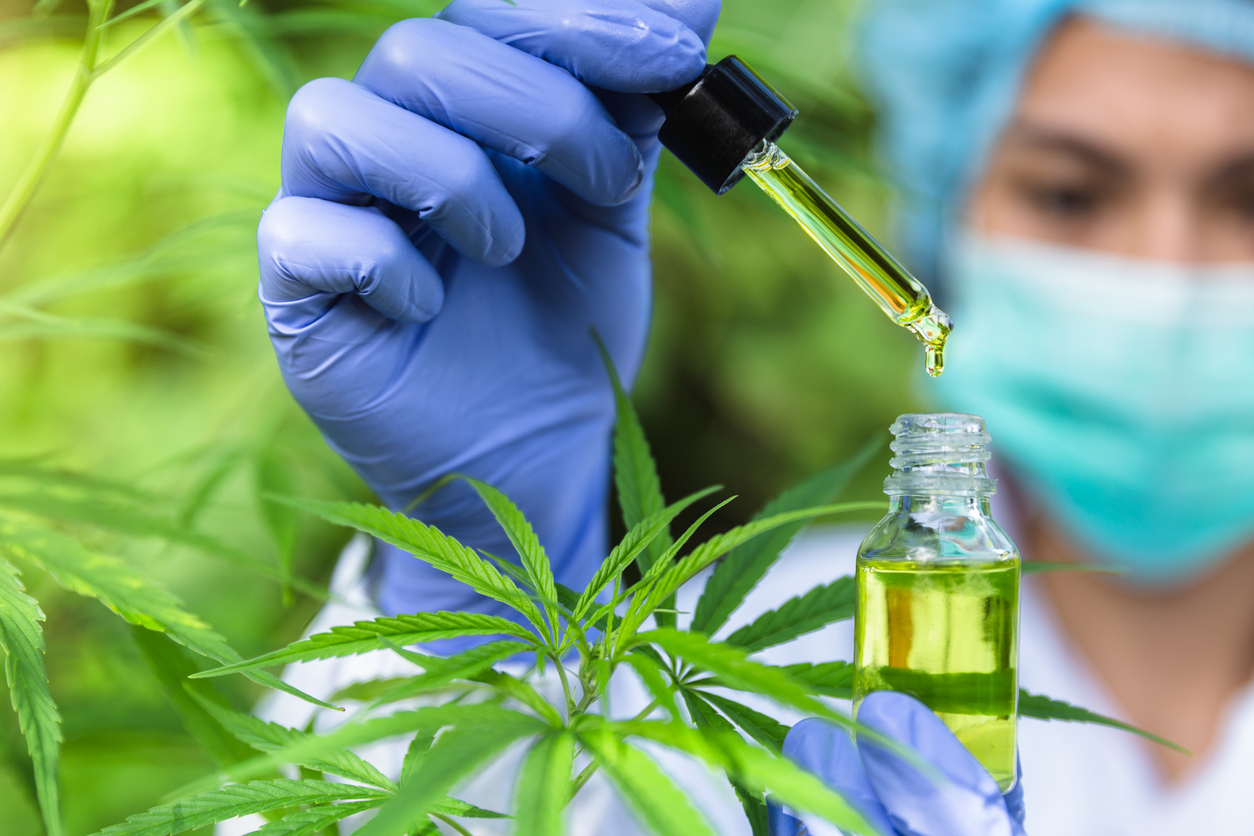Mental Health and Medical Cannabis: Perspectives from the United Kingdom

In recent years, the conversation around mental health treatment in the UK has broadened to include alternative therapies, such as medical cannabis. With conditions such as depression and anxiety affecting a significant portion of the population, exploring new avenues of relief has become increasingly important.
While conventional treatments such as psychotherapy and medication have been mainstays in the management of these conditions, the legalization of cannabis as a therapeutic treatment has generated great interest among healthcare professionals and society in general. Find out how this ancient plant is challenging perceptions about mental health care.
You might be interested in: Cannabis: Mental Disorder Russian Roulette
How can cannabis care for your mental health?

The use of cannabis in therapeutic treatment in the United Kingdom has improved the mental health of many of its inhabitants. Certain components of cannabis, such as cannabidiol (CBD), have been found to have effects on the body’s endocannabinoid system, which plays an important role in regulating mood, stress, and anxiety.
Research published in the Journal of Cannabis Research reported that CBD and CBD-containing compounds, such as nabiximols, may be useful in treating cannabis withdrawal and use disorder, schizophrenia, social anxiety disorder, ASD, and ADHD.
In addition, medical cannabis may have analgesic and anti-inflammatory properties that can help relieve chronic pain, which is often associated with mental health problems such as depression and anxiety. Pain relief can improve overall well-being and help reduce the stress associated with it.
However, as a Journal of Clinical Medicine Research study suggested, it’s essential to recognize that medical cannabis isn’t a “miracle drug.” While some patients may find it a relief for their conditions, others may not experience the same benefits.
Medical cannabis credentials: Opening doors to alternative therapies
Obtaining a UK medical cannabis card offers individuals a route to access this form of mental health treatment. These documents, while not mandatory, grant patients authorization from private clinics to receive cannabis prescriptions from medical specialists.
Accessing a medical cannabis card often involves a process that includes consultations with healthcare professionals, who assess the suitability of the treatment for each patient in question.
Once a patient acquires a medical cannabis card, it functions as a form of identification that confirms their authorization to use medical cannabis purchased from an approved source, such as a clinic or specialist physician.
For many people in the UK, having a medical cannabis card provides them with a sense of legitimacy and security regarding their treatment. It acts as tangible evidence of their status as a patient and can offer peace of mind when navigating the legal and social complexities surrounding cannabis use.
Considerations and precautions in cannabis treatments

Although research on the efficacy of cannabis for mental health conditions is ongoing, there are still gaps in our understanding of its long-term effects and potential risks. Therefore, patients considering medical cannabis as a treatment option should approach it with caution and in consultation with healthcare professionals.
Ultimately, the decision to employ cannabis as a component of mental health management should be made with care, considering individual circumstances, preferences, and medical advice. In addition, although medical use of the plant is legal in the United Kingdom, it continues to be criminalized in many countries.
Although it promises to be a potential treatment option for some people, medical cannabis isn’t a panacea, and its use should be approached with caution and informed decision-making.
Continue reading: Does CBD Really Improve Sleep?
Alternative therapies shaping the future of mental health care
As our understanding of cannabis as a therapeutic treatment continues to evolve, so will its role in the broader mental health care landscape. And while it’s not a guaranteed solution, it represents a step toward expanding treatment options and promoting greater accessibility to alternative therapies.
In recent years, the conversation around mental health treatment in the UK has broadened to include alternative therapies, such as medical cannabis. With conditions such as depression and anxiety affecting a significant portion of the population, exploring new avenues of relief has become increasingly important.
While conventional treatments such as psychotherapy and medication have been mainstays in the management of these conditions, the legalization of cannabis as a therapeutic treatment has generated great interest among healthcare professionals and society in general. Find out how this ancient plant is challenging perceptions about mental health care.
You might be interested in: Cannabis: Mental Disorder Russian Roulette
How can cannabis care for your mental health?

The use of cannabis in therapeutic treatment in the United Kingdom has improved the mental health of many of its inhabitants. Certain components of cannabis, such as cannabidiol (CBD), have been found to have effects on the body’s endocannabinoid system, which plays an important role in regulating mood, stress, and anxiety.
Research published in the Journal of Cannabis Research reported that CBD and CBD-containing compounds, such as nabiximols, may be useful in treating cannabis withdrawal and use disorder, schizophrenia, social anxiety disorder, ASD, and ADHD.
In addition, medical cannabis may have analgesic and anti-inflammatory properties that can help relieve chronic pain, which is often associated with mental health problems such as depression and anxiety. Pain relief can improve overall well-being and help reduce the stress associated with it.
However, as a Journal of Clinical Medicine Research study suggested, it’s essential to recognize that medical cannabis isn’t a “miracle drug.” While some patients may find it a relief for their conditions, others may not experience the same benefits.
Medical cannabis credentials: Opening doors to alternative therapies
Obtaining a UK medical cannabis card offers individuals a route to access this form of mental health treatment. These documents, while not mandatory, grant patients authorization from private clinics to receive cannabis prescriptions from medical specialists.
Accessing a medical cannabis card often involves a process that includes consultations with healthcare professionals, who assess the suitability of the treatment for each patient in question.
Once a patient acquires a medical cannabis card, it functions as a form of identification that confirms their authorization to use medical cannabis purchased from an approved source, such as a clinic or specialist physician.
For many people in the UK, having a medical cannabis card provides them with a sense of legitimacy and security regarding their treatment. It acts as tangible evidence of their status as a patient and can offer peace of mind when navigating the legal and social complexities surrounding cannabis use.
Considerations and precautions in cannabis treatments

Although research on the efficacy of cannabis for mental health conditions is ongoing, there are still gaps in our understanding of its long-term effects and potential risks. Therefore, patients considering medical cannabis as a treatment option should approach it with caution and in consultation with healthcare professionals.
Ultimately, the decision to employ cannabis as a component of mental health management should be made with care, considering individual circumstances, preferences, and medical advice. In addition, although medical use of the plant is legal in the United Kingdom, it continues to be criminalized in many countries.
Although it promises to be a potential treatment option for some people, medical cannabis isn’t a panacea, and its use should be approached with caution and informed decision-making.
Continue reading: Does CBD Really Improve Sleep?
Alternative therapies shaping the future of mental health care
As our understanding of cannabis as a therapeutic treatment continues to evolve, so will its role in the broader mental health care landscape. And while it’s not a guaranteed solution, it represents a step toward expanding treatment options and promoting greater accessibility to alternative therapies.
All cited sources were thoroughly reviewed by our team to ensure their quality, reliability, currency, and validity. The bibliography of this article was considered reliable and of academic or scientific accuracy.
- Khan, R., Naveed, S., Mian, N., Fida, A., Raafey, M. A., & Aedma, K. K. (2020). The therapeutic role of Cannabidiol in mental health: a systematic review. Journal of Cannabis Research, 2, 1-21 https://link.springer.com/article/10.1186/s42238- 019-0012-y
- Oberbarnscheidt, T., & Miller, N. S. (2020). The impact of cannabidiol on psychiatric and medical conditions. Journal of Clinical Medicine Research, 12(7), 393. https://www.ncbi.nlm.nih.gov/pmc/articles/PMC7331870/
- Scherma, M., Muntoni, A. L., Riedel, G., Fratta, W., & Fadda, P. (2020). Cannabinoids and their therapeutic applications in mental disorders. Dialogues in Clinical Neuroscience, 22(3), 271-279. https://www.ncbi.nlm.nih.gov/pmc/articles/PMC7605020/
This text is provided for informational purposes only and does not replace consultation with a professional. If in doubt, consult your specialist.







